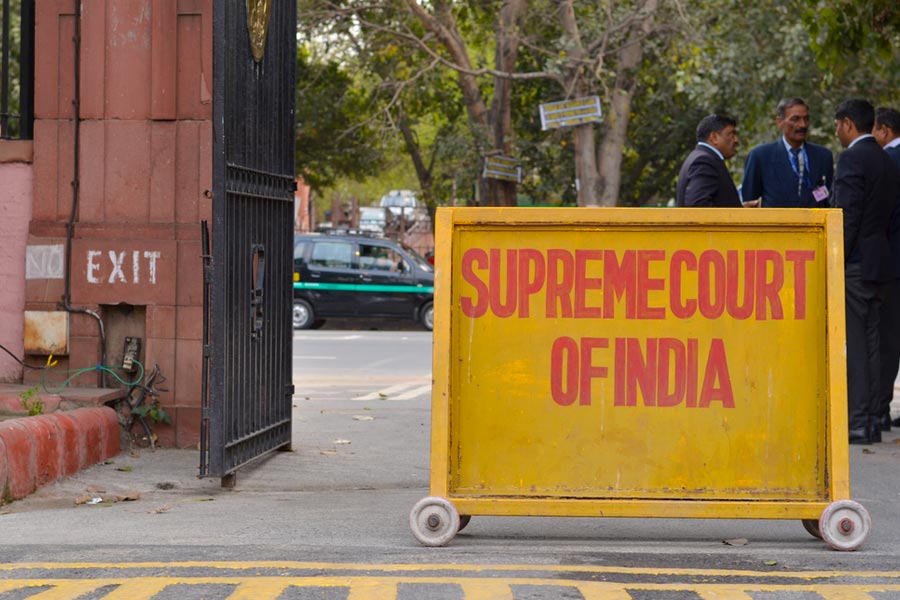The Supreme Court on Monday declined an interim stay "at the present stage" on Patna High Court’s order quashing the enhanced 65 per cent reservation provided to SCs, STs, OBCs and EBCs in Bihar, but admitted the state’s appeal against the judgment.
"We will list the matter, but we will not grant any stay," a bench headed by Chief Justice of India D.Y. Chandrachud told senior advocate Shyam Divan, who appeared for the Bihar government, during a brief hearing.
The Nitish Kumar government had, following a caste-based survey, raised the total quota volume for the socially and educationally disadvantaged communities from 50 to 65 per cent. The high court on June 20 set this aside as unconstitutional.
Divan argued hard for a stay on the high court judgment but the bench, which included Justice J.B. Pardiwala and Justice Manoj Misra, did not budge.
Finally, Divan pleaded that the court clarify that an interim stay was being denied only "at the present stage".
The bench relented and said: "No interim relief granted at the present stage…."
Justifying its move to increase the quota volumes, the Bihar government had said that despite decades of affirmative action, less than 18 per cent of state government employees were from the deprived communities, which made up around 85 per cent of the state's population.
This, it argued, showed that the backward communities were still unable to compete with the general-category applicants and the existing reservation framework was therefore inadequate.
In the appeal, filed through advocate Manish Kumar, the state argued that even the 1992 constitution bench judgment in Indra Sawhney (the anti-Mandal Commission case), which had set a 50 per cent ceiling for the total quota volume, allowed breach of the ceiling if a state could establish the backwardness of the targeted communities.
"...The state has complied with the binding decisions of this court and then amended the reservation acts," the Bihar government argued.
It told the top court that only 14.71 per cent of the state’s population had completed secondary education and 9.19 per cent completed higher secondary education.










